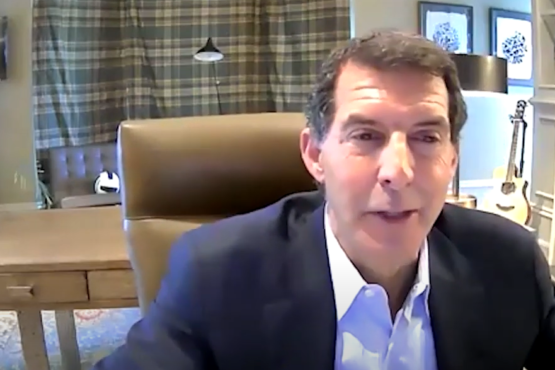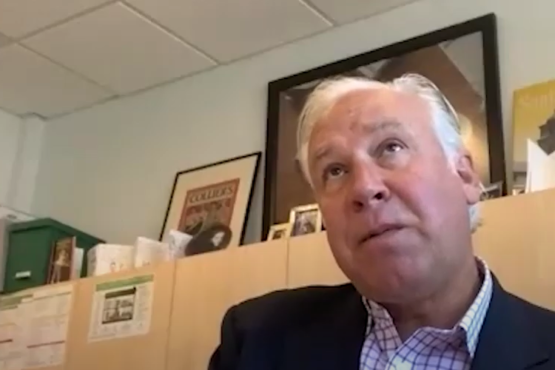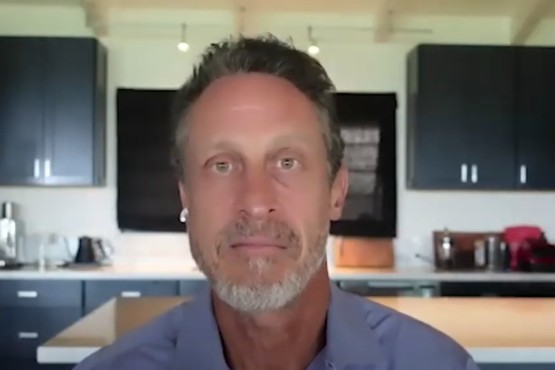In today’s episode I’m excited to have Justin Lanning, founder and CEO of 180 Health Partners joining us. Justin Lanning is a social entrepreneur and dedicated to making a meaningful impact on the national opioid crisis. He started and serves as CEO of 180 Health Partners, a Nashville based company that prevents babies from being born dependent on opioids by helping moms achieve their substance free goals. He’s created a private sector solution using the latest medical research in a capitated, value-based model that partners with Medicaid-managed care organizations for improved outcomes and real savings.
Wait until you hear just how Justin and 180 innovatively and compassionately addressed the challenges posed by opioids and neonatal abstinence syndrome.

Bill Frist: Welcome to A Second Opinion podcast where we are rethinking American health. I’m your host Senator Bill Frist. To make sense of all the dynamic perspectives in healthcare, you need a trusted source engaging at the intersection of policy, medicine and innovation. You need a second opinion, a podcast where it all comes together.
Bill Frist: In today’s episode I’m excited to have Justin Lanning, founder and CEO of 180 Health Partners joining us, but before we get started, I wanted to thank our sponsors. A Second Opinion is powered by Tivity Health: lifestyle brands that transform a healthy living for adults, from nutrition, fitness, and social connection.
Bill Frist: We’re also brought to you by Change Healthcare, leading the healthcare transformation by collaborating with providers, payers, and technology partners to accelerate the journey to a value based healthcare system. For more information, visit ChangeHealthcare.com/ASecondOpinion.
Bill Frist: And thanks to Jarrard, Phillips, Cate and Hancock, the preeminent trusted strategic communications firm devoted to health care providers.
Bill Frist: Now, let’s turn to the episode. Justin Lanning is a social entrepreneur and dedicated to making a meaningful impact on the national opioid crisis. He started and serves as CEO of 180 Health Partners, a Nashville based company that prevents babies from being born dependent on opioids by helping moms achieve their substance free goals.
Bill Frist: He’s created a private sector solution using the latest medical research in a capitated, value-based model that partners with Medicaid-managed care organizations for improved outcomes and real savings.
Bill Frist: Wait until you hear just how Justin and 180 innovatively and compassionately addressed the challenges posed by opioids and neonatal abstinence syndrome.
Bill Frist: And now please join me and our guest for A Second Opinion.
Bill Frist: Justin, thank you for being with us today.
Justin Lanning: Yeah, thank you for having me.
Bill Frist: 180 Health Partners. I see a lot of companies and interact with a lot of people, but I think you are on a journey with a company, with an entity, with a team that is right in the middle of some of, if not the most challenging issues in health and healthcare today. It’s in the middle of the addiction world. It’s in the world of behavioral challenges. It’s women’s health. It is pregnancy. You put all that together and you’re really working, not just in one dimension in that challenge, but tell me a little bit about the journey. 180 Health Partners: where did it come from and where are you today and start at the beginning.
Justin Lanning: Yeah you know, it’s funny because I wasn’t planning on starting another company at all. In fact, that was the farthest thing from my mind. But just being so mission-driven, I continued sitting there and thinking, you know, how can we really impact and how can I use the things I’ve learned over the years to impact the trajectory of society? That was really what it was like. And sitting down with folks like yourselves and others, just how can we really change that?
Justin Lanning: And nothing else was resonating with me. And this conversation came up. And particularly within my family, my family’s been significantly impacted by drug addiction, by domestic violence, behavioral health on both sides, both my wife and myself. And so within those family extensions, we’ve been managing those things. And we actually had two little cousins that were born with something called NAS or neonatal abstinence syndrome. The severe shaking and shivering and can even lead to levels of microcephaly and different things. So, these are severe cases. And when looking at this problem, it was not sure you should start a business around this. This is a pretty muddy space, as you outlined. All these intersections of these spaces.
Justin Lanning: But as I started looking, what were the breakdowns in the market? It really began to resonate. This is what we need to do. This is how we need to really impact so many lives, lives of communities, of women, of children, of whole families.
Justin Lanning: And so really when some of the breakdowns I saw were an entire industry, everybody kind of looking at each other saying, are you going to pay for this? I’ll do it if you’ll pay for it, but I can’t pay for it. Well, if you’re not going to pay for it, can I pay for it? Or I’ve got to rob from Peter to pay Paul to pay for it.
Justin Lanning: In the midst of all those things, I also saw phenomenal momentum, phenomenal. Lots of a plant a thousand flowers, watch them grow. Every community has somebody trying to do these, but we’re operating in scales of, I work with 10 people, or I work with 17 and we’re talking about national epidemics, and epidemics that didn’t just start just recently. Right? The opioid crisis didn’t just start; we just started paying attention to it.
Justin Lanning: The crisis of cocaine, while we don’t talk about it, it’s still a crisis. It’s just not the front of the headlines. Smoking is still a significant issue. Alcohol, just all these other substances. But opioids specifically in that area I saw everybody’s trying to do something and nobody coordinating any of it.
Justin Lanning: So if I saw a provider or provider said, I really want to help people, but I’m not equipped. I don’t, get paid to do behavioral health of a medical provider. Behavioral health providers saying, well, I want to, but these are the things I get paid for and all of these things aren’t billable. But if somebody would pay me, I’d gladly do that.
Justin Lanning: Organization saying, hey, I’m trying to raise funds and grants and, and do donations, but this one only lets me do this and I can only do that.
Justin Lanning: Payers, you know, saying, well everybody wants me to pay them but you pay me up front, but I need the ROI. And then the government, you also have, which plays … All these parts are very important. Government plays a role, but they can only do so much through grants and how that gets deployed and understanding how if money comes in, it can only go through the public health department while the public health department’s not connected with the Medicaid department. So how can you deploy funds or not?
Justin Lanning: And so all this mix, I said, you know what we need to do is we need to work with just phenomenal capital friends out there. And people who believe in I want to do well or do good by doing well. And so what we did is we brought new capital into the market that didn’t exist and so that we could approach the health plans who are already at risk for these lives.
Justin Lanning: And we just said, let us bring a model to bear that we’re going to bring our capital and you’re going to pay us for the outcomes. And the outcomes are pretty simple as we started.
Bill Frist: Back up just a little bit, so the patient, just so I can get a good image of a typical patient, the fragmentation of care, everybody’s well-intended.
Justin Lanning: Yeah, absolutely.
Bill Frist: Imagine a patient and maybe a family in the middle. Who is the patient? What are the needs? What is the problem that we’re addressing?
Justin Lanning: Sure. The patient is a mother, an expecting mom. We focus in on expecting moms. Or at least that’s how we started, right? And focusing in on an expecting mom, what happens, especially within the Medicaid population, 81% of these babies are born to moms on Medicaid. So we chose to start there. Still we’re talking about an epidemic, so this is big in any population.
Justin Lanning: But what we found is that these mothers, story after story after story, a mom struggling to pay bills, doesn’t have a consistent job, doesn’t have stable childcare. Her utilities are getting shut off, but the world we’re telling her just check into that place or go to something that’s standard healthcare, like something that’s referred to as IOP or intensive outpatient therapy, right?
Justin Lanning: That requires three hours, three days a week. And because I don’t have dependable transportation, I’m going to take the state ride share. So I’m really asking her to take about five hours out of the middle of her day where she’s not able to pay bills. And oh by the way, when you come to that, you can’t bring a child.
Justin Lanning: So we saw a lot of moms desiring and reaching out for help in a system that wasn’t built for help. It was built to for come to me healthcare. So if I want to go to my behavioral health, I have go there so that I can get my billable visit or I want to go to … So each one of these things just didn’t quite match life, even though the desire was there.
Justin Lanning: And so what we said, we said let’s bridge that gap and we have several true norths that we follow and we felt as well that, you know, you hear about behavioral health and you hear about social determinants of health and you hear about medical care. Well, it all needed to be integrated in together. So the way we approached it was we need to meet the moms where they’re at.
Justin Lanning: That means emotionally, that means physically. So whether I’m meeting them in co-located offices, video telehealth at their homes, at the McDonald’s across the street from work. But that’s not billable in healthcare. But that’s what they need.
Justin Lanning: And so we also follow up, you know, two other key true norths of ours or any amount of engagement’s better than no engagement at all. But the fee for service world says I have to at least have a 60 minute visit or a 45 minute visit or a 30 minute visit. Well, what if she only has five minutes to build stability in her life? She needs that. And so that’s one.
Justin Lanning: The other thing is we always believe that relationship will always trump process and science. We are big believers and followers and setters of process and science at the same time. That can never trump I just need relationship because through relationship, we emphasize these two things that were a cortisol reduction program for both the mom and the baby. And cortisol is a stress hormone, right? So I want to reduce stress for both the mom and the baby pre and post pregnancy.
Justin Lanning: If we reduce stress, the next thing I want to do is to begin to stabilize. Now we’re talking about social determinants, lifestyle, environmental. These are kind of the keys that allow you to begin to work on behavioral health and medical.
Justin Lanning: So the next thing I want to do is stabilize life. Now if we read Ruby P. Kayne’s work or other work on bridges out of poverty, it’s one thing to walk and say, hey, I’m looking at your life and I believe these things are out of order. But that’s how one person grades another person.
Justin Lanning: How peers grade each other as a totally different story. And that really emphasized our need to bring in peers.
Bill Frist: So I want to keep exactly the journey you have me on, but take that patient … How do they get into your system now? Is it a payor or an insurance company or the Medicaid program, but some way. I’ve got a good picture of a woman who is addicted. And again, that’s a huge, huge number of people today as we know with this epidemic.
Bill Frist: The social services around them, people kind of eager to participate, but a lack of coordination. But how does she get into the system and then what would happen to her? Just take a patient and walk me through what would happen.
Justin Lanning: So to go back to one little stat I shared earlier that that 92% of babies born, it’s about that number of babies born with NAS, neonatal abstinence syndrome, their moms saw some type of medical doctor during their pregnancy for something. And seeing that, we see moms who care for something. You’re doing something there.
Justin Lanning: The challenge is what they were seeing was their experience would be going to a doctor’s office or or somewhere in the community, ask for help. And it was, here’s a list of people you should call. Well, there’s a lot going on in her life and her ability to follow up is not. So that goes back to our, I’m going to meet every mom where she’s at. So now what happens is a mom walks into an OB’s office, an MAT clinic, her local FQHC, her community public health, a church anywhere.
Justin Lanning: And we’ve created a network that when she walks in and says, hey, you know, this is what’s going on. They say, let me introduce you to one of my partners from 180 health partners or Strongwell is what our pregnancy program is branded as.
Justin Lanning: And depending on the place, what happens is either one of our people literally walks into the room right then and there, introduces herself and creates a warm, instant connection. And usually that’s with either what we refer to as our enrollment specialist or peer advocates. These are women who have previously dealt with this or women who are very excellent in the empathy side of connecting with somebody.
Justin Lanning: If it’s at an office where we’re not physically present at that moment, they can either video telehealth and say, let me introduce you to Amy right now. This is one of my partners, we’re going to work with you. So, we’re warm right there.
Justin Lanning: Others will literally call us and we’re available via phone to have a warm referral. Some when the mom, and we’ve all had this at doctor’s offices, when you go to check out at the end they say, “He, let me set up your radiology appointment. Let me set up this.” The checkout person even in some offices will say, “Let me call and get you connected with 180 right now because I see the doctor once you connected,” They also have prescriptions. So that’s kind of a warm referral.
Justin Lanning: The other part is they can actually prescribe our program. That’s a little less effective.
Bill Frist: And now a quick word from our sponsors that make this podcast possible.
Bill Frist: Tivity Health does health differently. It promotes a proactive approach in achieving a healthy lifestyle that embodies the leading social determinants of health: food insecurity, physical activity, and social connection. With its family of healthy lifestyle brands, including Silver Sneakers and Nutrisystem, Tivity Health is making an impact in reducing factors that lead to serious health issues and high medical costs, such as chronic conditions, obesity, inactivity, social isolation and loneliness. To learn more, go to TivityHealth.com.
Bill Frist: Change Healthcare is inspiring a better healthcare system. Change healthcare provides data and analytics driven solutions to improve clinical, financial and patient engagement outcomes in the US healthcare system. Change Healthcare’s comprehensive suite of software analytics, technology enabled services and networks solutions take cost out of the healthcare system. I driving improved results in the complex workflows of payers and providers by enhancing clinical decision making, simplifying billing, collection and payment processes, and by enabling a better patient experience. For more information, please visit ChangeHealthcare.com/ASecondOpinion.
Bill Frist: A Second Opinion podcast is sponsored by Jarrard, Phillips. Kate and Hancock, the premier strategic communications firm for health care providers and producer of The Art of Change.
Bill Frist: Healthcare is in a moment for big choices, big risks and big change. How do you take advantage of that? Now, Jarrard is demystifying the art of change. Through interviews with transformational leaders, historical examples and fresh insights, Art of Change will give you the context and tactical approaches to empower your organization and healthcare or the future. Go to JarrardInc.com/SecondOpinion. That’s JarrardInc.com/SecondOpinion.
Bill Frist: And now back to the episode.
Bill Frist: And so how far into the pregnancy typically could it be? Just after the pregnancy begins or very late and then pick one time and then walk me through.
Justin Lanning: I’ll walk you through it, you bet. Sorry about that. Yeah, so typically we’re engaging about the middle of the second trimester. That’s about the average. We have some later, we have some earlier, but the average is about the middle of the second trimester. So as soon as, let’s call her Judy.
Justin Lanning: As soon as Judy comes into the program, she’s instantly engaged. She’s got several different layers here. The first layer is she has appear in a care pod team assigned to her. Within her care team as a counselor, a clinical social worker, and at least one peer. She also has what we call like a resource navigator community advocate.
Justin Lanning: The other thing she gets in addition to that is access to our virtual community. So she instantly is able to get into a virtual community, an app or website where she can commune with all these other women that are either currently in the program or have been in the program or have just lived this life experience. And so she gets an instant support group, an instant support mechanism, and this team.
Justin Lanning: At that point, our peer advocates meet with the mom in person, depending on where she’s at. We don’t overwhelm. We’ve got our clinical models, but let’s just say Judy’s pretty stressed, right? She’s got a pretty extreme circumstance. Our peer will begin to engage, not trying to change a bunch of behaviors, but to first get to know Judy, make that relationship and fix maybe just … Let’s reduce the cortisol, reduce the stress levels. So that may come in the form of Judy, you know, something seems like you’re having troubles with your transportation. Tell you what for the next two weeks, let us get you a taxi to and from or an Uber depending on where you live, it’s what’s available. And so we’re going to take care of that.
Justin Lanning: And it also seems like childcare’s a big issue here and we’ve made a connection with two groups in town that that will provide free childcare for you for the next month. Let’s get that.
Justin Lanning: So we begin that stabilization. As that happens, what happens with Judy is Judy begins to trust us a lot more. Judy’s then more willing to meet with our clinical social worker, our counselor, to begin talking about coping mechanisms and trauma and things that have cropped up most likely because of ACEs, the adverse earlier childhood experiences.
Justin Lanning: And so within those areas, we’re meeting with moms on an average of nine to 11 times per month. That’s bi-directional communications. We make connections with them up to 21 to 28 times a month, depending on the regions. And that can be through daily text, in the virtual community. They can do a daily check-in. So really,
Bill Frist: You’re really wrapping this whole team around-
Justin Lanning: That’s right.
Bill Frist: And identifying the needs. How big of a problem is it? Just a magnitude wise? I’ve got a feel for the patient now and the individual.
Bill Frist: How big? Neonatal abstinence syndrome, which is the product of birth to a mom who has had an addiction, has an addiction. How big is it? Is it expensive? What does it do to the healthcare system?
Justin Lanning: Yeah, so the latest number is it’s about an $80 billion challenge to the Medicaid side of healthcare. And if that’s 80% of the problem, you can kind of do the math and round up. We’re over $100 billion challenge to the healthcare system.
Bill Frist: A baby would stay in the hospital for how long?
Justin Lanning: Yeah, so most of those costs are related to the baby in the first year of life. And really if you boil it down it’s to the first month or so. Because you know you’ve got an average length of stay, because when this baby’s born they generally spend a fair amount of their life in the NICU or in some type of intensive care. That’s where a bulk of the cost comes.
Bill Frist: Are they there for a week? Or a month? Or a-
Justin Lanning: It depends on the hospitals, right? So it’s somewhere between, on average it’s about 21 days. Some hospitals have policies that it goes as much as 30 to 45 days and others have policies of less than that. But average is-
Bill Frist: So a child, a baby that’s born to an addicted mom, it’s about point to an addicted mom, it’s about $100,000 currently and with 180 Health, is there enough data yet to know what that cost would be? That spending would be?
Justin Lanning: Yeah. So, our average babies, if you average out our population, our babies are born right around 12 to $14,000 instead of depending on where you’re at in the nation, sometimes that number is $50,000, $60,000, $70,000, $100,000. So, our average baby is much … is born and that’s the financial side, right? The health sides tremendously. There’s a lot of great impact on that.
Bill Frist: And then, there’s a cost savings. Again, it’s hard to jump from the individual.
Justin Lanning: I know, right.
Bill Frist: Jumping to these big costs, but they are huge potential cost savings you terms of dollars and cents. The biggest savings I would think is over that baby’s life because what happens in that first 30 days or first year really determines disabilities and other costs later.
Justin Lanning: So let’s talk about that. So right now, the latest data I’ve seen is that, and not to be overly data-driven here, but adverse childhood experiences drive and these are things that drive a lot of chronic diseases and it’s attached right now the latest data I saw was 87% of chronic diseases stem from ACEs.
Justin Lanning: And when you hear that exactly to your point, my challenge is is none of us seem to have the persistence to to that long vision, I guess is the word I’m looking for. Because we do run into health plans regularly when we’ve made the value pitch of and think about all these others, they’re like, yeah, that’s fine, but the average Medicaid employee isn’t going to be working there for more than just a few years. And so they’re not really looking long range

Justin Lanning: So I emphasize that. Not to bash anybody. This is hard. this is hard to get societies to think super long-term. But the reason we picked this population, you’ve got the opioid crisis, which is absolutely critical right now. If we picked any other substance, we might’ve gotten some pickup. But opioid, you’ve got a severe thing. You’ve got NAS, which is very expensive.
Justin Lanning: So we’ve got the cost, we’ve got the opioid crisis. The other thing we have is we have an immediacy with this population because we believe in, when we’re showing now that our model works for not just pregnancy and addiction, not just pregnancy and opioids, but pregnancy and any substance but also substance exposed living.
Justin Lanning: But to prove that model, we needed something that had a definitive beginning and a definitive ending and a definitive measurement so that health plans could look and go, “Wow, that model works. Could you deploy that model to the rest of my population?” Because starting the other way wouldn’t have worked.
Justin Lanning: So that’s another reason we started with this population. But you’re absolutely correct. When you start looking at the long-term cost over the life of these babies, while we’re saving tens and tens and tens of thousands of dollars per baby in just the first four months of life, over the life span we’ve calculated it’s in the hundreds of hundreds of thousands of dollars that we’re saving.
Bill Frist: So you get paid through … It’s mainly Medicaid, or the numbers right now are Medicaid.
Justin Lanning: Yeah, that’s where we started.
Bill Frist: So Medicaid pay you through the plan, so you’re typically in a state that would have managed Medicaid.
Justin Lanning: I’ll talk to you about strategies and you tell me if this is important to you and everyone that’s interested. So we specifically chose as starting the business to focus on an area where we could make, again, how am I going to change the trajectory of society? Therefore, I have to think about how is the fastest way for me to get to the most lives? I have to think that way.
Justin Lanning: And so in thinking that way and understanding that right now, just shy of 80% of Medicaid lives are managed by MCOs, managed care organizations, health insurance companies. So, the state Medicaid departments outsource and hire these health plans to deliver their services. Well, of that 80% of health plans, it’s close to like 90% of them are delivered by these national kinds of plans, right? So we decided, let’s focus in on again, how do we get to the most lives as quickly as possible?
Justin Lanning: Let’s focus on a little bit of a wash, rinse, repeat strategy. Let’s focus on working with those national health plans that are in 36 states, 27 states, 28 states. Get it really good with them and then have them go ahead and take us into other states quickly. Yeah, so that’s why we started the way we started.
Justin Lanning: Medicaid largest population, 80% through MCOs. Let’s focus on the MCOs. So there are states that … Every state has a challenge with this, that’s why it’s called an epidemic, but there are states that aren’t MCO states and we’re not specifically targeting them yet. Yet, because that’s a little bit rate limiting.
Bill Frist: You’re taking on the biggest challenges in society today. You’re doing it with the most caring and empathetic and team based approach. Meeting the patient, as you said, really where they are. You’re in the behavioral field where you know where if you have an impact, in addition to the huge cost savings, from just the rest of that baby’s life for the next 70, 80 years, what you do early on, putting all that together, the biggest challenge is the greatest opportunity but a new approach.
Bill Frist: How optimistic are you and with progress made with receptivity looking ahead two years from now, are you optimistic? Do you feel good about things?
Justin Lanning: Let me describe maybe in more detail of why I’m optimistic about not just our company but also where we’re headed in some areas. Some challenges that we thought would be faster than aren’t today have to do with every … We all talk on stages about value based care, value based care, you won’t go to a health care conference where we’re not saying value based care, value based care.
Justin Lanning: And then you get into the contracting side of things and everybody kind of wants a value based care but it’s complicated, right? So within the industry, I believe part of the reasons I’m optimistic is that the accordion comes out and you end up with a bunch of startups, a bunch of niche companies. Yeah. With that layer we then end up with these health plans and the state saying, I need to see more value-based contracts.
Justin Lanning: So, they start doing them. The problem is is they’re now going, I can’t tell, am I paying for the same shared savings across four or five or six different people? I’m not sure what I’m paying for here. So they’re beginning to draw back a little bit, because they launched into it and now they’re going, wait, I need to get a little bit.
Justin Lanning: And I think what we’re going to see is that in Korean begin to contract because the health plans are saying, I need to find solutions that have breadth across populations because it’s too hard for me to do these niche things in and out. They’re just not built that way.
Justin Lanning: And we also know that in about two years, the states are really just, you just watch their policies. You see how they put timing on these things of how the health plans are supposed to crank up and get more serious about their value based plans. Well, that hits fever pitch in two to three years.
Justin Lanning: So we’ve had some learnings that they’re drawing back, not stopping them, but saying, I’ve got my learnings. Now, how do I refine? And I believe we are positioned very well, as I stated. We’ve got outcomes; they’re definitive. We did it on a niche population, but we right now are in the process of expanding to all substance exposed living. So that over that next two years when they’re looking for folks to say, hey, can you take a risk with me across a greater population, we’ll be able to have proven a model, have outcomes on it, and expand and address that.
Justin Lanning: So I think that accordion will look for the health plans, need those folks that can say, hey, can you just go at risk for my substance exposed population? Can you go at risk for my oncology? Like it’s just got to be bigger, bigger carve outs if you will, and they’re looking for those [crosstalk 00:00:29:09].
Bill Frist: It’s really interesting in terms of innovation, as you progress as an iterative process and especially in healthcare where it comes back to real patients and real lives and moms and kids and babies and in the future, the iterative process frustrating because as you said, the plans, will move ahead and then they’ll pull back and then move ahead. And then a young company like 180 Health Partners who’s basically going right at the heart of one of the major challenges and injustices of our society. You do have not unlimited capital, but you are the innovator. You’re approaching these seemingly impossible problems in new ways and as that goes forward, it’s tough and it’s a challenge.
Bill Frist: But as we close, I just want to applaud you, your teams, your caregivers, your community workers, your integration in the community deeper for taking these issues on and it is the Justin Lannings of the world with his team and with the investors who sort of make it possible, especially early on that are going to change the course of history and these are individual lives.
Bill Frist: But again, thank you for being with us. Again, look forward to talking to you many more times, just like this. I know we just touched the surface, just touched the surface, but look forward to having you back and let’s continue this conversation.
Justin Lanning: Absolutely. Thank you so much.
Bill Frist: Thanks a million. Appreciate it. Thank you.
Bill Frist: This episode of a second opinion was produced by Todd Schlosser, the Motus Creative Group team and Snapshot Interactive. You can subscribe to A Second Opinion on Apple Podcasts or wherever you are listening right now and be sure to rate and review A Second Opinion so we can continue to bring you great content.
Bill Frist: You can get more information about the show, its guests and sponsors at ASecondOpinionPodcast.com. That’s ASecondOpinionPodcast.com. Thank you again to our sponsors, Tivity Health, Change Healthcare and Jarrard, Phillips, Cate and Hancock. Be sure to join us for our next episode with virtual reality and healthcare entrepreneur Aaron Ganni.
Bill Frist: A Second Opinion broadcasts from Nashville, Tennessee, the nation’s Silicon Valley of health services, where we engage at the intersection of policy, medicine, and innovation.





